Thursdays @ 7p: Foreign Americana
Outsider Art in the Literal Sense
This series presents a unique opportunity: A look at the United States from the perspective of an outsider. Each film was crafted by a director born and raised outside of the U.S., and each one conducts a probing examination of American culture. Rural and urban life, politics, art, the dream-world of Hollywood¿all these subjects and more are covered here.
We begin the series with DETOUR (1945, from German director Edgar Ulmer), a hauntingly bleak tale of lust, murder, and broken dreams which has gained a reputation as one of the finest films noir of the Forties. Robert Siodmak, one of Ulmer¿s former collaborators from the German film industry of the 1920s, also wound up in Hollywood, and he contributes THE KILLERS (1946), which expands and enlarges upon the work of one of the most iconic American authors¿Ernest Hemingway.
Max Ophuls, one of the most towering figures of mid-century German and French cinema, made just four movies during his decade in the United States. His lack of productivity wasn¿t helped by his long-standing feud with the ever-xenophobic Howard Hughes (a personification of the American Dream gone horribly awry), who unceremoniously fired him from the troubled production of VENDETTA in 1946, although not before nicknaming him ¿The Oaf¿. Ophuls¿ revenge came in CAUGHT (1949), in which Robert Ryan¿s millionaire villain comes across as a thinly-veiled depiction of the eccentric aviator/producer.
Two of our movies make full-frontal assaults on American institutions: Billy Wilder¿s SUNSET BLVD. (1950) takes Hollywood to task for its destructive emphasis on youth and beauty, while Otto Preminger¿s ADVISE & CONSENT (1962) is a stinging critique of the Senate and its political machinations. (Incidentally, though Preminger¿s greatest achievements came behind the camera, you may also recall his sterling performance as the villainous concentration-camp commander in Wilder¿s STALAG 17!)
Hollywood¿s most famous English import, Alfred Hitchcock, chimes in with his satirical take on small-town America: 1955¿s THE TROUBLE WITH HARRY. Filled with its director¿s trademark black humor, the film shows the bucolic quiet of a rural hamlet shattered by a (apparent) murder.
With the advent of New Hollywood came a new generation of foreign masters eager to make their imprint on the American mythos. We bring you MIDNIGHT COWBOY (1969) to transition you into this new era. Crafted by the Englishman John Schlesinger, the movie follows the poverty and uncertainty of a young Texas greenhorn recently moved to pre-Giuliani New York City. It remains the only Best Picture winner released with an ¿X¿ rating. On the other coast, CHINATOWN (1974) certainly needs no introduction; what is remarkable that Roman Polanski¿s foray into the American film noir tradition may not even be his best and/or most beloved film. It is an indispensable classic.
We have not ignored overlooked gems. In 1981, the Czech New Wave master Ivan Passer worked with United Artists to make CUTTER¿S WAY. The studio had no idea what to do with the completed film and quietly dumped it in the cinemas. Beginning with a murder witnessed by one of two protagonists, the movie is a stinging examination of disillusion in American society, then fresh from Vietnam and confronting rotting ideals. The deconstruction of American values continues with PARIS, TEXAS (1984) by German auteur Wim Wenders. Cloaked in the same beautiful photography as his previous masterpiece WINGS OF DESIRE, Wenders trains his camera on a mute truck driver who wanders through the American Southwest in an effort to reconnect with his family.
Our series concludes with a more recent film. Ang Lee¿s BROKEBACK MOUNTAIN (2005) not only updates the Western for today¿s audiences, it is also a sensitive portrayal of a same-sex relationship between two lonely ranch hands. Lee, who explored similar territory in his Taiwanese production THE WEDDING BANQUET, gracefully introduces these themes into the Americana tradition, as possible signposts for future films as American society continues to evolve and progress.
-Jack Hamm and Kevin Kwok
2013-01-10 @ 7:00 PM
Detour
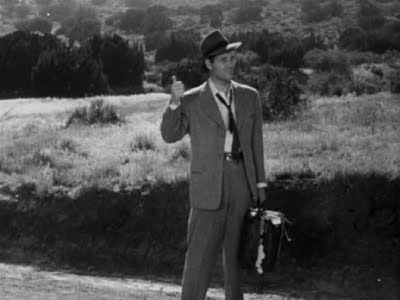
(Edgar G. Ulmer,1945) · This once-obscure movie, made by Austrian immigrant Ulmer for a tiny Poverty Row studio, has become known as one of the finest works of film noir, that most American cinematic genre. Its protagonist is hitchhiker Al (Tom Neal) who becomes mixed up in the accidental death of a man who gives him a lift. Afraid he¿ll be implicated, Al quickly blunders into the clutches of a femme fatale (Ann Savage), who tries to entice him to pose as the dead man.
runtime: 67 min format: 35mm
2013-01-17 @ 7:00 PM
Caught
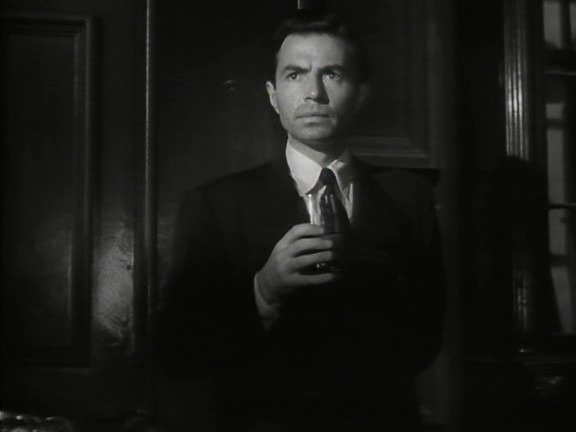
(Max Ophüls,1949) · Ophuls made just four American films, and Caught represents his delicious revenge on Howard Hughes, that weird symbol of the American Dream-turned-nightmare. Hughes had hampered Ophuls¿ early efforts to establish himself in Hollywood (nicknaming him "The Oaf" and then firing him from the directorial chair). Caught's Hughes stand-in (hateful, wife-abusing millionaire Smith Ohlrig, played by Robert Ryan) is not too far off from the real thing.
runtime: 88 min format: Archival 35mm
2013-01-24 @ 7:00 PM
The Trouble With Harry
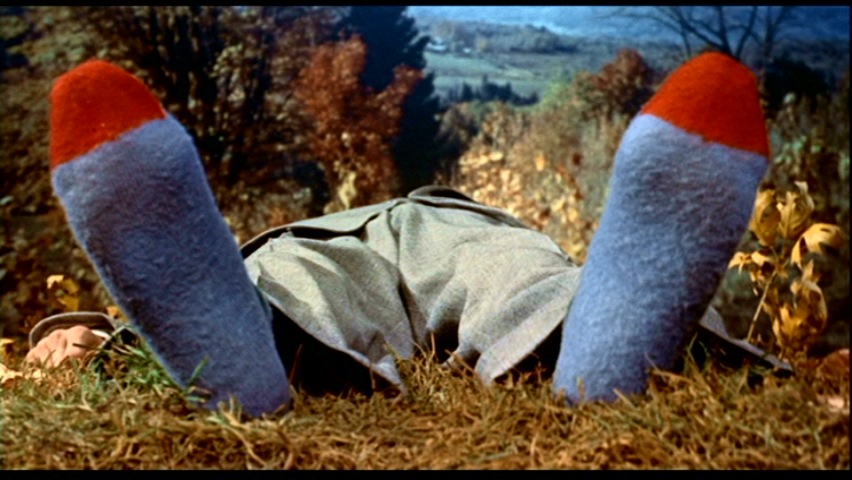
(Alfred Hitchcock,1955) · By 1955, the Master of Suspense had worked in the States for fifteen years. Yet this film is one of his best (and funniest!) examinations of American culture. Harry¿citizen of a small, weird American town¿has died. And the trouble begins when several different people, convinced that they are responsible, try to hide the body. The movie is Shirley MacLaine¿s screen debut and Hitchcock¿s first collaboration with composer Bernard Hermann.
runtime: 99 min format: 35mm
2013-01-31 @ 7:00 PM
Sunset Boulevard
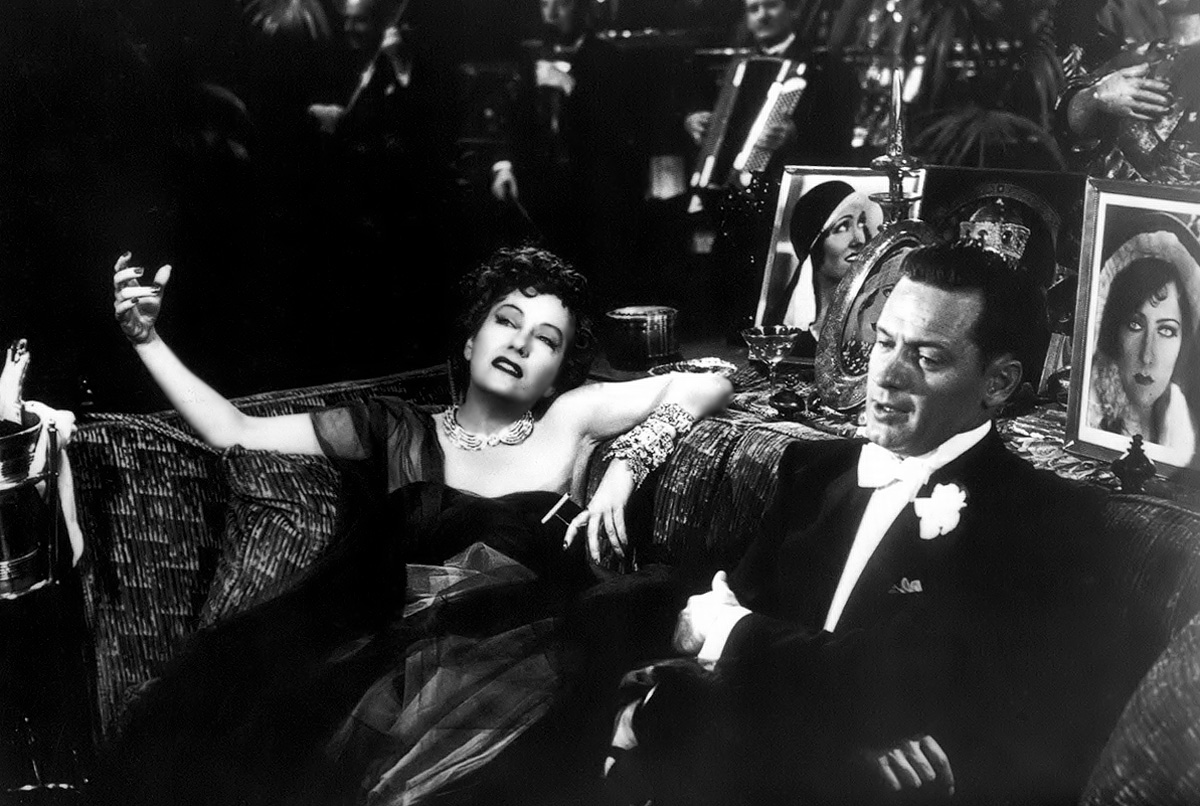
(Billy Wilder,1950) · Wilder, that renowned expert in American idiomatic dialogue, spoke zero English until his mid-20s. Wilder's film career began in his native Austria, but took off once he reached the US. But by 1950, he understood Hollywood heartlessness well enough. This tragedy of faded silent-film star Norma Desmond (Gloria Swanson), narrated by the corpse of hack screenwriter, Joe Gillis (William Holden), is one of cinema's most moving (and self-aware) tales.
runtime: 110 format: 35mm
2013-02-07 @ 7:00 PM
Advise and Consent
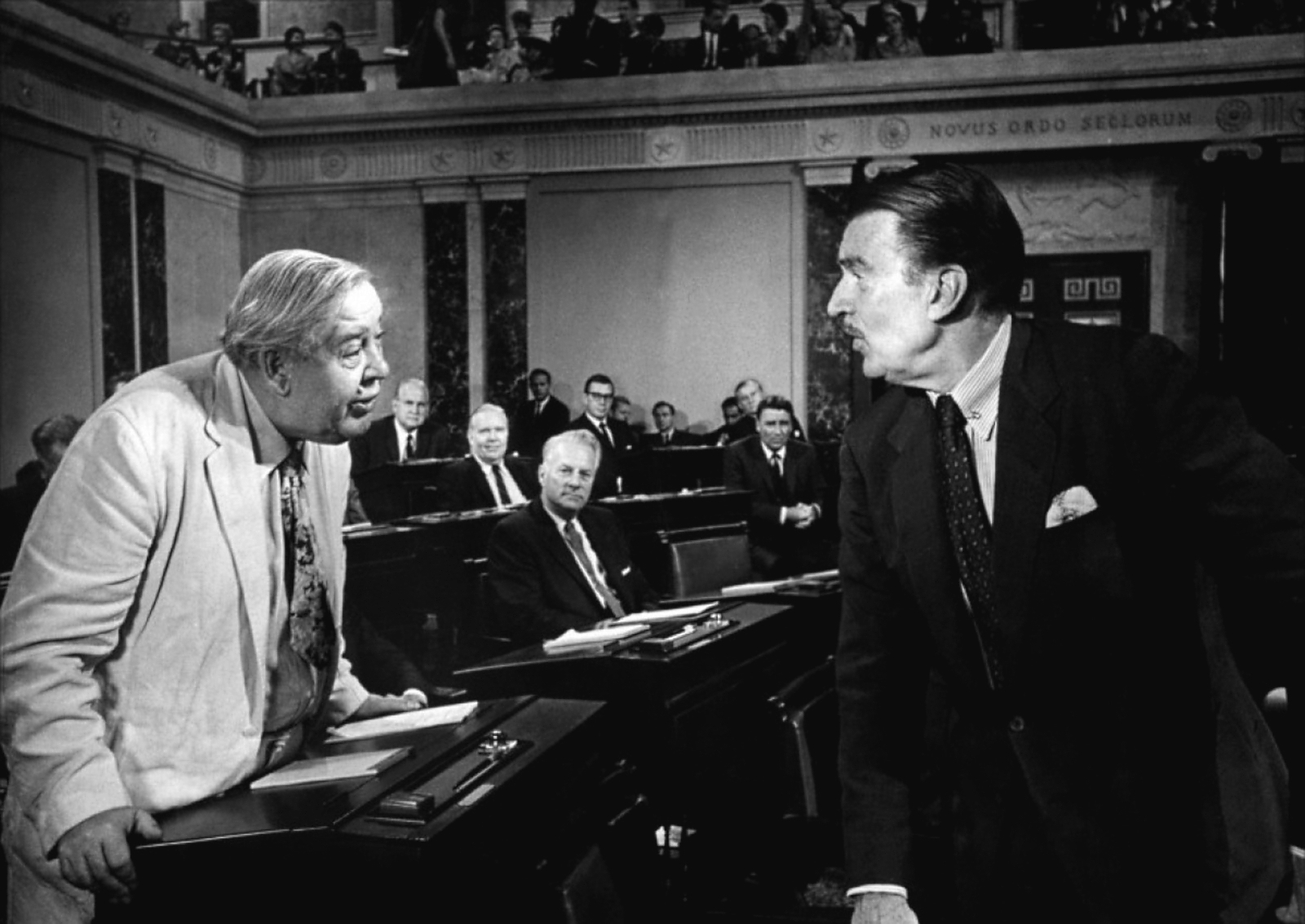
(Otto Preminger,1962) · This critical look at the American government tells the story of Robert Leffingwell (Henry Fonda), controversial nominee for Secretary of State. Leffingwell faces accusations of Communist connections (dating to his wild young days at the University of Chicago!) and must endure a contested confirmation process in the Senate. The movie also features Charles Laughton¿s last screen performance as the leader of the anti-Leffingwell faction.
runtime: 139 min format: Archival 35mm
2013-02-14 @ 7:00 PM
Midnight Cowboy
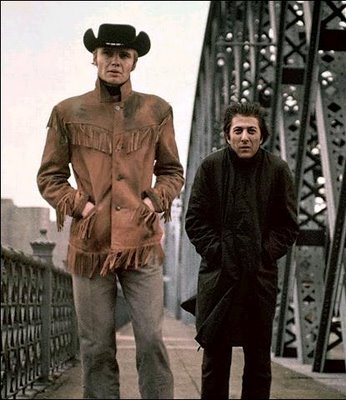
(John Schlesinger,1969) · (The first and only X-rated film to win an Academy Award for Best Picture.) Brit-born director Schlesinger guides Dustin Hoffman and newcomer Jon Voight through seedy, '60s New York. Voight, as a naive Texan dishwasher lost in the big city, is revelatory, and has the misfortune of meeting and befriending Hoffman¿s lowlife con man as he steadily wastes away. Sordid and gritty, it¿s the Big Apple in all of its pre-sanitized, pre-Giuliani splendor.
runtime: 113 min format: 35mm
2013-02-21 @ 7:00 PM
Chinatown
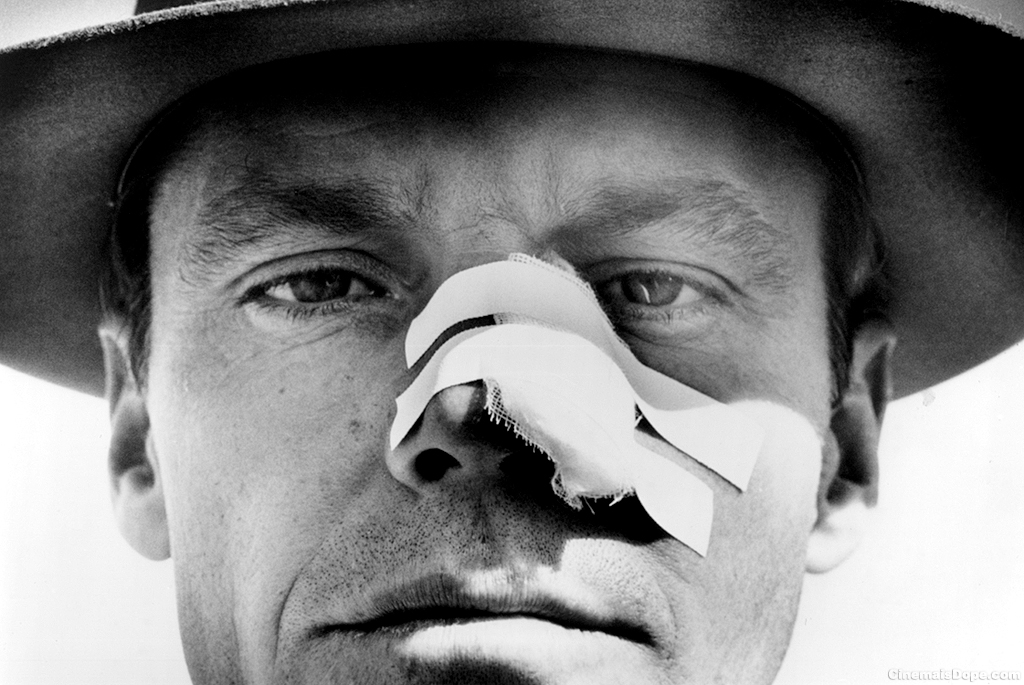
(Roman Polanski,1974) · Polanski¿s homage to the Hollywood noirs of yore was not only his last American production, but also his finest. The year is 1937. In L.A., Evelyn Mulwray (Faye Dunaway) hires private investigator J.J. ¿Jake¿ Gittes (Jack Nicholson) to shadow her husband¿s every move. It's an undisputed classic buoyed by Robert Towne¿s great screenplay, Polanski¿s masterful direction, and a performance by Nicholson that enshrined his status as a Hollywood legend.
runtime: 130 min format: 35mm
2013-02-28 @ 7:00 PM
The Killers
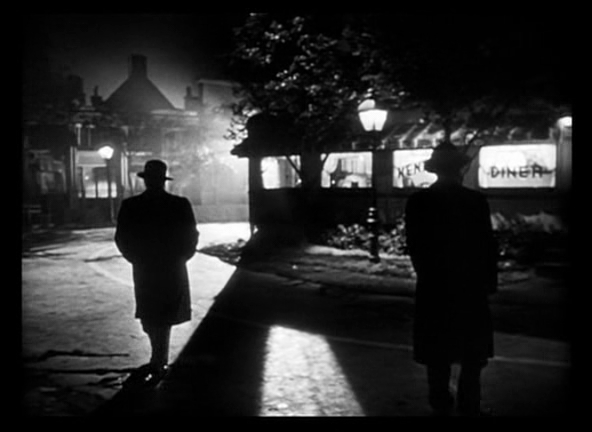
(Robert Siodmak,1946) · German director Siodmak takes on the work of Ernest Hemingway. The source story recounts the murder of a boxer by two hit men, but these events take up only the first twenty minutes of the movie; Siodmak continues the story with a flashbacked depiction of an insurance investigator¿s examination of the dead man¿s past. Burt Lancaster makes his first movie appearance as our deceased protagonist, opposite Ava Gardner as his deceitful girlfriend.
runtime: 103 min format: 35mm
2013-03-07 @ 7:00 PM
Paris, Texas
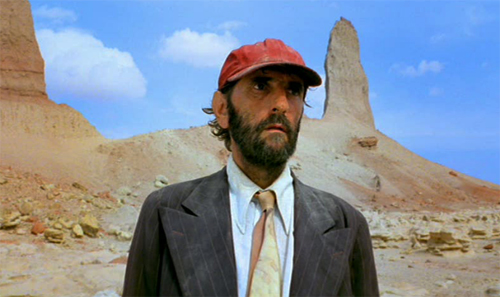
(Wim Wenders,1984) · German director Wenders logs the miles and hits the road as he follows Travis¿a scraggly, haunted man who wanders out of the Mojave Desert in search for his brother, his son, and his wife. With several starts and stops in Los Angeles, Wenders and cinematographer Robby Müller unspool frame after frame of gorgeous, desolate shots of the Texas desert, billboards, motels, and that quintessential American pastime: the open road.
runtime: 147 min format: Archival 35mm
2013-03-14 @ 7:00 PM
Brokeback Mountain
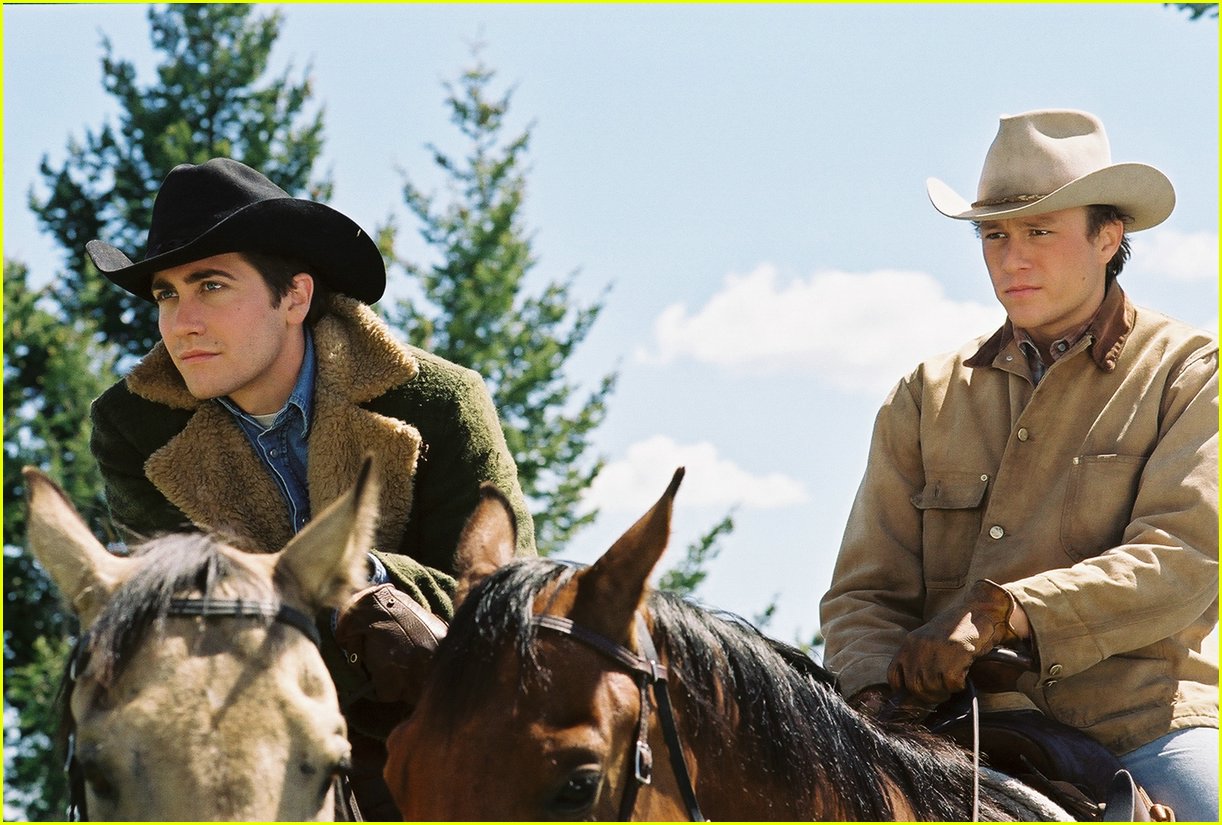
(Ang Lee,2005) · So often labeled as ¿ that gay cowboy¿ movie, Taiwanese-born Lee packs up for Wyoming to tell a love story relatable to all regardless of sexuality, nationality, and political stance. Lee (The Wedding Banquet, Eat Drink Man Woman) is sensitive and assured in his Oscar-winning direction. He gets courageous performances from Heath Ledger, Jake Gyllenhaal, Michelle Williams and Anne Hathaway. And, of course, the West looks breathtaking.
runtime: 134 min format: 35mm



